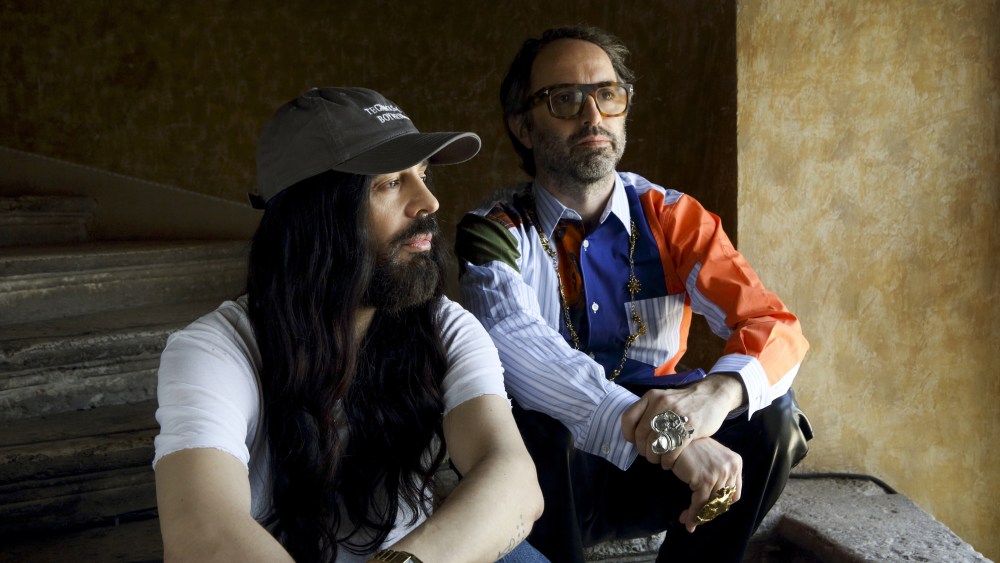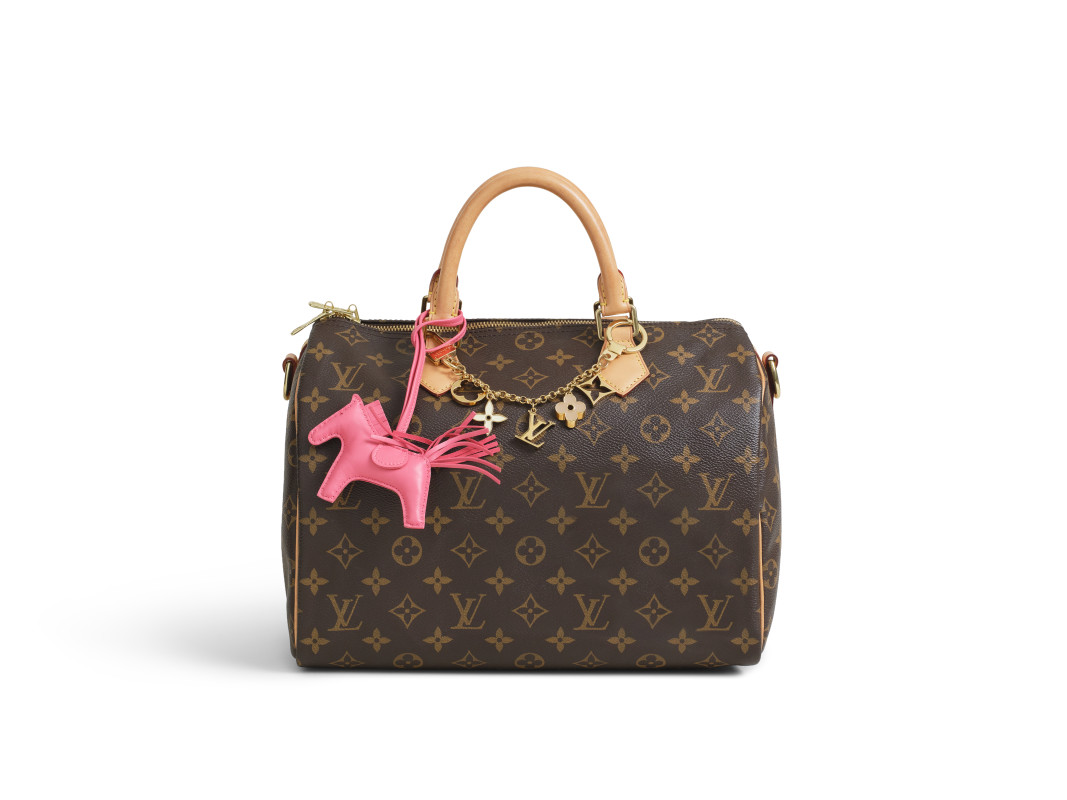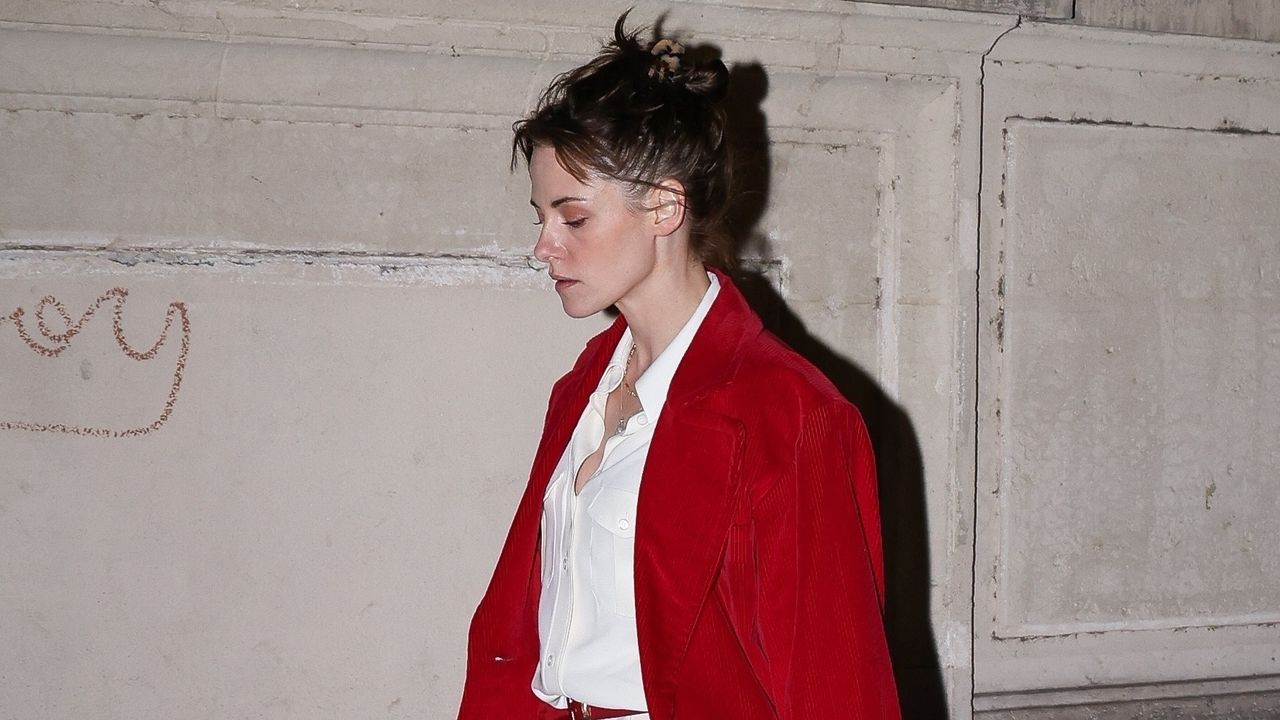
PARIS – Fashion and philosophy may seem like unlikely bedfellows, but when Alessandro Michele met Emanuele Coccia, they immediately spoke the same language.
The creative director of Valentino and the philosopher resumed their long-running conversation on stage for an event at the Italian Cultural Institute in Paris to mark the release of the French edition of their joint book, “The Life of Shapes: Philosophy of Re-enchantment.”
In front of a packed room, Michele described how he came to philosophy belatedly in his 40s, partly thanks to his life partner Giovanni Attili, a professor at the prestigious La Sapienza University in Rome.
“That’s when I discovered that fashion has a lot in common with philosophy, because fashion speaks about life,” he said. “I discovered that there was a language that managed to express things that for me felt totally right. It was exactly the language that fashion needed – at least the way I see it.”
But when Attili helped him to write his first press release during his former stint as creative director of Gucci, Michele quickly realized that not everyone was a fan of his high-flying discourse.
“A lot of journalists were shocked at the time. It was as if I had left a threatening letter on their chairs. Some of them thought: ‘This guy is nuts,’” he recalled. “But then I discovered that a lot of philosophers have spoken about fashion and that perhaps, philosophy is a universal language that covers every type of human activity.”
Michele jokingly recalled that when he first heard a lecture by Coccia on the theme of “Lucentezza,” or “Sparkle” in English, it was love at first sight. Attili introduced them, and they went on a “date” that turned into regular conversations during the coronavirus pandemic.
Coccia described their talks as “these strange reciprocal psychoanalysis sessions where you don’t quite know who is the analyst and who’s being analyzed.”
The book, published by HarperCollins in Italy and Flammarion in France, reprises the flow of that discussion by juxtaposing their ideas in two distinct fonts on the same page.

Moderator Jean-Marie Durand, Emanuele Coccia and Alessandro Michele with an interpreter at the Italian Cultural Institute in Paris.
Caroline Psyroukis/Courtesy image
Its central idea is that fashion is distinct from other art forms in that humans have no choice but to engage with it on a daily basis, unlike a painting or a movie that can be observed from a distance.
“Fashion isn’t something you can just contemplate. You take the equivalent of a Picasso painting and you transform it with your body. You step into the work of art, and you force others to go through the medium of this work of art to perceive you, to interact with you,” Coccia explained.
As a result, it’s impossible to opt out, he continued. Even people who reject the fashion system are sending a coded message with their clothes.
“The weight of fashion is that your appearance says something about you, whether you like it or not,” he said. “It sometimes even says too much. Sometimes, in the morning, it’s really a pain to think, ‘What am I going to say today?’ It’s as if you were giving a presentation about yourself, 24 hours a day.”
If that sounds oppressive, the duo also highlighted the playful nature of dressing. Coccia, who was close to the late Azzedine Alaïa and Carla Sozzani, who continues to champion Alaïa’s legacy, noted his personal style is constantly evolving.
Moderator Jean-Marie Durand was visibly intrigued by Coccia’s colorful attire, which included a pair of psychedelic Puma MB.04 LaMelo Ball Scooby Doo sneakers. (Michele, by contrast, sported relatively low-key brown leather Sebago boots, though he accessorized his tracksuit jacket and workwear pants with oodles of Baroque jewelry.)
“I need periodic metamorphoses,” Cocci said of defying conventional ideas of what a philosopher should look like. “It’s a form of infinite freedom, because it means that identity isn’t something predefined, but something we must constantly engage with, refine and transform.”
You might think they would both welcome fashion’s growing presence in museums and other cultural institutions, but Michele argued that clothes should not be treated like works of art.
“When someone takes a relic, like a dress that belonged to Greta Garbo, and puts it in a case, in truth they are murdering it. They are killing it because that thing no longer makes sense when it is not inhabited. On the other hand, it takes on great value in the eyes of our Western culture, because at this point there is distance, and that produces in us a sense of reverence,” he said.
The designer, known for his maximalist, genderfluid creations, sees his role as providing a bridge to allow people to explore apparently imaginary identities by slipping into new guises.
“That’s what I try to do and I think it can be redemptive, because for example it saved my life, to a degree, and changed my life,” he said. “Fashion is a language, it’s a bit like knowing how to write. You can write a shopping list and you can write a poem.”

The French edition of “The Life of Shapes: Philosophy of Re-enchantment.”
Courtesy of Flammarion
#Alessandro #Micheles #Book #Lands #France






